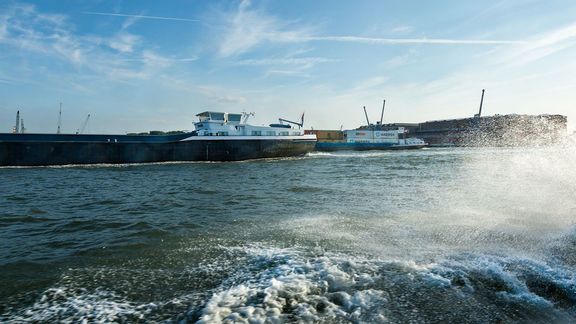Port of Rotterdam Authority launches trial providing advice on berths using digital application
The Port of Rotterdam Authority is starting a trial digital service providing application-based advice on public berths for inland shipping. As they are approaching the port, users of RiverGuide - the digital route planner for inland navigation - will receive a push message asking them whether they require a berth.

The aim of the trial is to validate whether voyage data and vessel characteristics can be used to provide correct advice on berths. We shall also be assessing whether the skipper appreciates the advice provided. Running until the end of January 2020, the trial will include 500 port calls. If the trial proofs successful, the system could become a permanent feature within RiverGuide and other route planners.
Inland vessels visiting the port of Rotterdam sometimes have to wait a while before they are able to access a terminal and then look for a berth. Another reason why inland vessels need berths is so they can wait for a new cargo. A berth may also be necessary because a skipper is obliged to take a break due to the law covering sailing hours.
Port has 500 public berths
Spread throughout the port of Rotterdam, there are approximately 150 locations with a joint capacity of around 500 vessels. For some years, the Inland Shipping Berths Information System (BLIS) has been providing access to online information on whether or not berths are available. This functionality is also built into RiverGuide, the app for smooth, safe and smarter navigation, developed on behalf of the Port of Rotterdam Authority in association with eight other waterway authorities.
Increase efficiency
It has been shown that skippers regularly have to look for a place because their preferred public berths are either taken when they arrive or do not meet their requirements (e.g. the displaying of cones if dangerous substances are on board). It has also been shown that skippers do not always consult BLIS’s berthing function. We have also seen that in some areas of the port, there are rarely any vacant berths, whereas at other locations there is still plenty of available capacity. This causes unnecessary shipping movements and is therefore inefficient. The Port Authority is hoping that this trial will be able to help visiting inland vessels even more, by providing custom advice whenever possible.